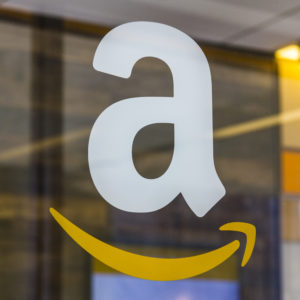The biggest four tech companies — Apple, Amazon, Facebook and Google — struggled to answer antitrust accusations at a House hearing last week.
Rep. David Cicilline (D-R.I.), ranking member of the House Judiciary Committee’s Subcommittee on Antitrust, grilled Amazon in particular for suppressing competition by allegedly ripping off its own third-party sellers to promote Amazon-branded products. He called the e-commerce market “unfair and unbalanced.”
“I think we see a tremendous amount concentration of market power that is resulting in less choice and worse quality of products for working people,” Cicilline said, addressing Amazon’s Associate General Counsel on Competition, Nate Sutton. “Retailers and manufacturers of consumer goods are relying on Amazon. Doesn’t that create a conflict of interest?”
Sutton replied that Amazon “has been very proud” to help its third-party sellers “grow,” but that didn’t satisfy Cicilline.
“You say you do not use seller data to compete with other sellers online,” Cicilline said. “You do collect enormous data about what’s selling, where they’re selling. You’re saying you do not use that data in any way to promote Amazon products? And I’ll remind you you’re under oath.”
“We do not use individual seller data to directly compete with them,” Sutton said. “We use data to serve our customers.”
Cicilline then described the many stories of Amazon’s third-party sellers who say Amazon often creates replicas of their products in order to drive shoppers to the Amazon knockoff instead of the original brand. Rep. Pramila Jayapal (D-Wash.), also described a constituent of hers that pays a living wage and sells products online but was “concerned” that Amazon duplicates products to drive shoppers away from third-party sellers.
“Do you use consumer data to favor amazon products?” Cicilline asked. “Analysts estimate that between 80-90 percent of sales go to the Amazon buy box. You’re not using that in anyway to change the algorithm support the sale of Amazon-branded products? The best purchase to you is an Amazon product.”
“No sir, that’s not true,” Sutton replied. “If we did that, they’d go elsewhere, they have many options,” he added, which he later clarified include Walmart, eBay, and Target, which recently launched an online marketplace for e-sellers.
Several lines of questioning focused on Big Tech’s acquisitions to solidify market power.
Matt Perault, head of global policy development at Facebook, said that Facebook does buy up its competitors to help Facebook “innovate more effectively.”
Rep. Kelly Armstrong (R-N.D.) asked if any of the Big Four use venture capital to invest in tech start-ups, but most were unsure.
Google’s Director of Economic Policy Adam Cohen said, “We do acquire some small businesses to accelerate innovation. We’ve probably spawned ten times as many companies from former employees, like Twitter and Pinterest and Instagram.”
Rep. Joe Neguse (D-Colo.) then pointed out that Facebook owns four of the six largest social media platforms (Facebook, Instagram, Messenger and WhatsApp).
“So you can understand skepticism because when a company owns four of the largest six entities, measured by active users, in the world, in that industry, we have a word for that, and that’s monopoly, or at least monopoly power,” Neguse said.
The scrutiny comes as President Donald Trump, conservatives and presidential candidates like Sen. Elizabeth Warren (D-Mass.) accuse Big Tech of violating antitrust laws.
Last month, the Department of Justice and Federal Trade Commission revealed plans to investigate Apple, Amazon and Google for antitrust violations.
At a Hoover Institution event in May, Sen. Josh Hawley (R-Mo.) and conservative economists and experts explored the ways Facebook and Google potentially violate antitrust laws, and discussed whether antitrust litigation is the right route for regulators to take in the digital age.
Economists are somewhat divided on the issue, but the economists called to testify at Tuesday’s hearing were in agreement that there are antitrust concerns in the tech industry.
Tim Wu, a lawyer from Columbia University and one of the witnesses at the hearing, believes the Silicon Valley problem has evolved beyond antitrust concerns. He told members of the antitrust committee that “startup rates have declined dramatically across the economy” (citing a Brookings study), and “the solution should be a broad effort to reboot the startup economy. That can be done not through one policy or passing any single law.”
Part of the problem, he said, is “high- tech industries” are “prone” to consolidation.
Maureen Ohlhausen, a partner with Baker Botts law firm, warned the committee against moving too hastily on antitrust investigations, to avoid discouraging competition and innovation, which, as Cicilline said, Silicon Valley has spearheaded in the last decade.
“Competition enforcers should not intervene simply because they dislike certain market outcomes,” she said. “Antitrust is about protecting the process, not guaranteeing a particular result at a particular time. Our free market system rests on the conclusion that markets in which firms must endure competitive pressures will produce favorable outcomes in terms of price, output, quality, and innovation in the long run. But if some competitors seem to be winning the race at a point in time, we should not use antitrust enforcement to hamper them or to require them to compete less aggressively, as long as they are not corrupting the competitive process.”

